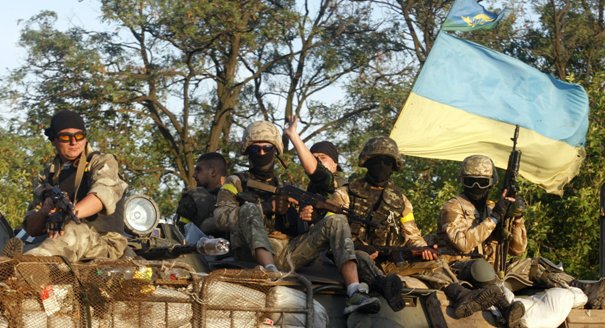How effective the anti-Russian sanctions adopted in the West is a subject of current debate. Some—primarily the authors of the sanctions—believe that these measures weaken the ruling regime and can force it to make concessions or will eventually lead to its collapse. Others claim that the sanctions only strengthen Putin since they validate his main premise that Russia is being surrounded by enemies, and help to consolidate the people around him, thus boosting his popularity to unprecedented heights. In other words, they maintain that the more sanctions are imposed on Russia, the stronger and longer the Putin rule will be. In fact, some even think it may never actually end.
Thus, Putin’s domestic political success is going to morph into an economic collapse. But this collapse is not yet in sight, while the success is already quite tangible.
It is often said that Putin has found himself in a no-win situation in Ukraine: whatever he does will lead to negative results. The same can be said of the European and American approaches. Incidentally, a similar situation now exists in the Middle East where no resolution of the crisis is in sight. Paradoxically, a series of catastrophes in the Middle East may become the only avenue for cooperation between Russia and the West. After all, both the United States and Russia supply weapons to thwart the ISIS insurgency in Iraq. The Syrian issue can also be resolved only through the interaction of external actors. Otherwise, the Arab Spring (the term that has fallen out of use of late) will become an endless source of new threats.
Finally, we need to reflect on another, possibly unexpected and not immediately obvious, turn in the Ukrainian conflict. We are starting to get used to it. It is no longer a short-lived, unexpected crisis; it is becoming, or may have already become, a stable fixture of the geopolitical landscape. Both sides are starting to treat the confrontation between Russia and the West as something routine.
Politicians and the public are bracing themselves for just permanently living with it. Russia and the West will exist in parallel universes, even though they may agree on certain issues. It will be very hard to bridge this mutual isolation in the future. Europeans will come to see Putin and Russia’s political system as immutable. Incidentally, the issues of Ukraine, Donbas, sanctions, and counter-sanctions are off the first pages already. They are not as interesting and exciting now as they were a few months ago.
Habit is second nature. Both sides are psychologically prepared to reject each other. If the West and Russia get used to this state of affairs and start to consider it the new norm, the consequences may be quite unappealing.





